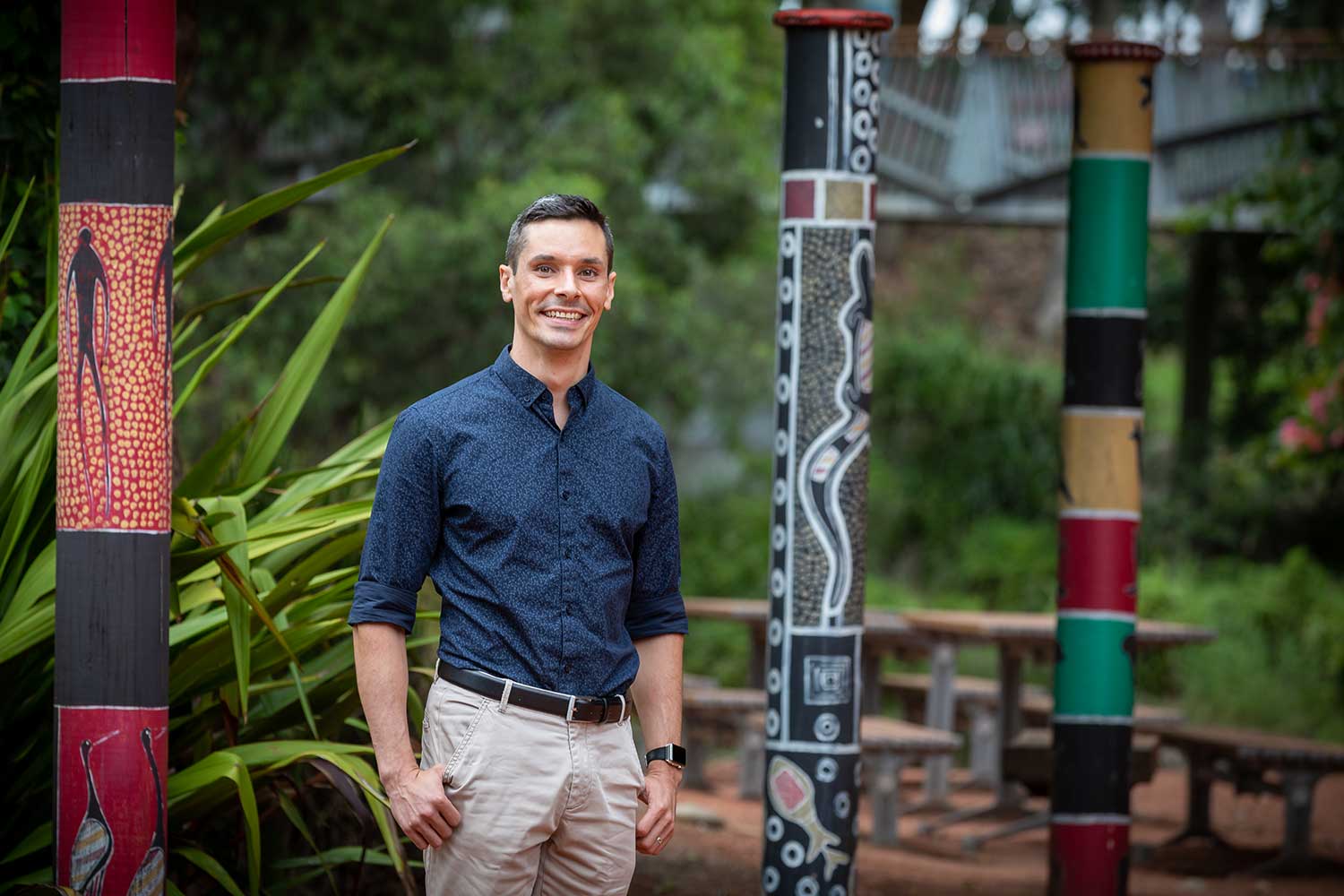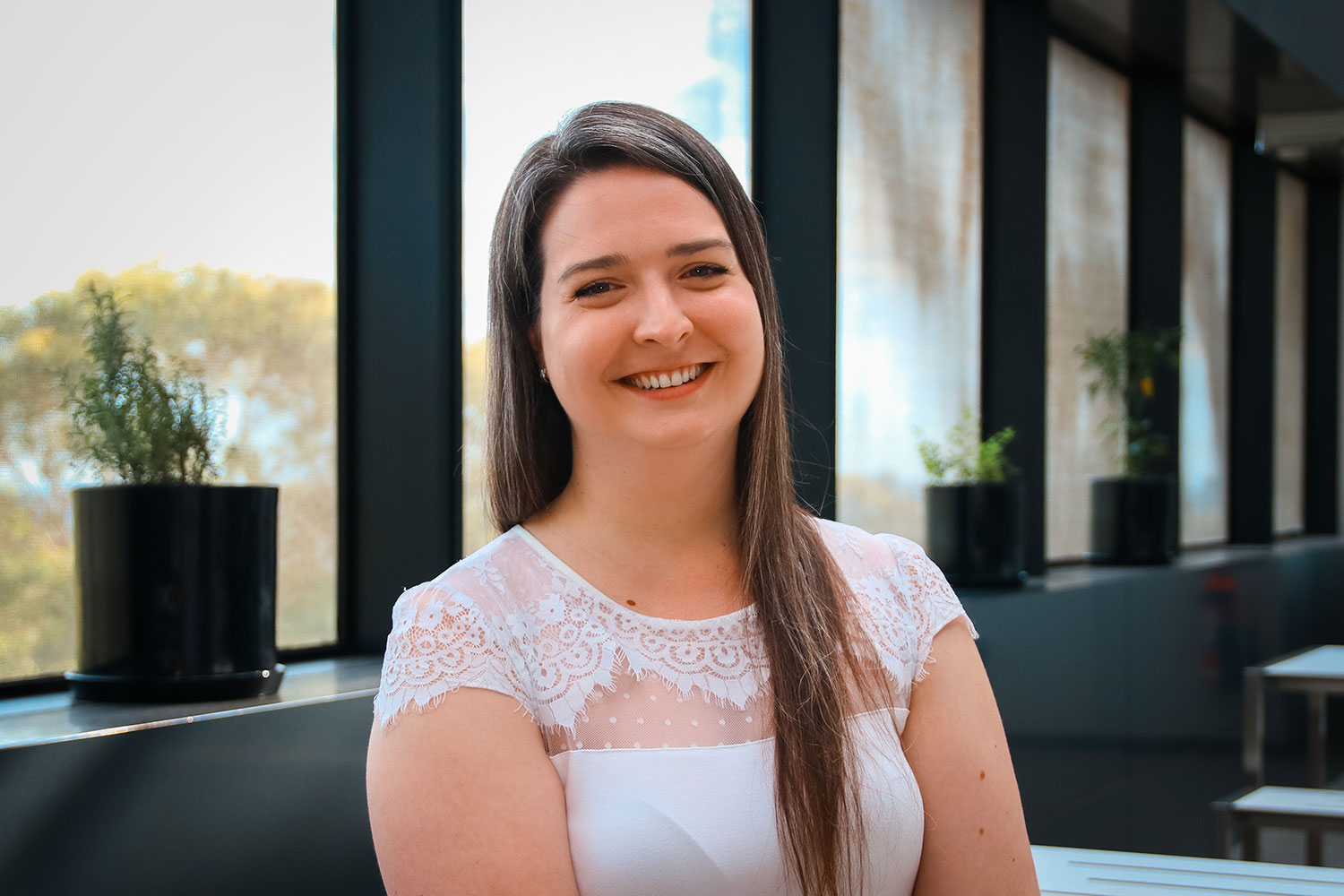$1m supports immunology and microbiology researchers
Two Newcastle scientists are among six promising researchers recognised with a prestigious NSW Government grant designed to support and build health and medical research talent in NSW.
 Dr Emily Hoedt and Dr Guy Cameron have each received a $500,000 NSW Health Early-Mid Career Researcher Grant – to use genomic surveillance to help control infectious ear and upper respiratory disease outbreaks; and to improve colorectal surgical outcomes.
Dr Emily Hoedt and Dr Guy Cameron have each received a $500,000 NSW Health Early-Mid Career Researcher Grant – to use genomic surveillance to help control infectious ear and upper respiratory disease outbreaks; and to improve colorectal surgical outcomes.
Dr Guy Cameron, a proud Aboriginal man and immunologist, will establish a genomic technology platform with Dr Trent Butler of NSW Health Pathology for the future control of infectious upper respiratory and ear diseases across our regions.
Certain strains of Streptococcus pyogenes and other invasive bacteria can cause serious and life-threatening infections in young people, with Aboriginal and Torres Strait Islander children at an increased risk of developing serious illness.
Having timely access to a genomic platform will help determine which bacterial strains have potential to cause invasive disease versus those which are more likely to cause mild symptoms, such as a sore throat. Incorporating this technology into Dr Cameron’s diagnostic service may help inform the best medical treatment to reduce the risk of these poor health outcomes.
In addition, genomic surveillance will enable early identification of possible outbreaks in the community and will provide valuable information on the bacterial infections in the ear, nose and throat which lead to ear disease and related hearing loss - a major health concern for Indigenous children.
A large expansion of infrastructure underway at John Hunter Hospital will ensure acute care medicine and clinical research meet the growing needs of the Hunter New England communities and Dr Cameron’s genomic technology will provide vital support for the future control of infectious diseases across the region.
 Microbiologist Dr Emily Hoedt is working to improve colorectal surgical outcomes.
Microbiologist Dr Emily Hoedt is working to improve colorectal surgical outcomes.
Colorectal surgery to remove damaged tissue is the main treatment for many digestive diseases; such as cancer and inflammatory bowel disease. Reconstruction involves either re-joining the remaining bowel (anastomosis), or the formation of a permanent end stoma - a small opening in the abdomen which is used to remove body waste into a collection bag.
Despite progress in many aspects of surgical care the rate of bowel reconstruction failures (anastomotic leaks) remains high at between 10-15 per cent and some patients do not survive infection.
There is substantial evidence of the gut microbiome’s role in maintaining normal bowel function, causing or exacerbating digestive diseases, and influencing even how wounds in the gut heal.
Dr Hoedt is aiming to identify microbiome biomarkers that are associated with anastomotic leak in order to identify at risk patients and design an appropriate intervention to target this biomarker, improving colorectal surgical outcomes.
HMRI is a partnership between the University of Newcastle, Hunter New England Health and the community.
Contact
- Carmen Swadling, Communications Coordinator
- Email: carmen.swadling@newcastle.edu.au
Related news
- Launch of the School Students’ Statement on the Right to a Healthy Environment
- Funding boost to technology for lower emission steel
- Newcastle team on mission to improve childhood cancer outcomes
- Shanae’s passion for caring delivers her dream to work in health
- Food and nutrition degree serves Keren a rewarding career
The University of Newcastle acknowledges the traditional custodians of the lands within our footprint areas: Awabakal, Darkinjung, Biripai, Worimi, Wonnarua, and Eora Nations. We also pay respect to the wisdom of our Elders past and present.